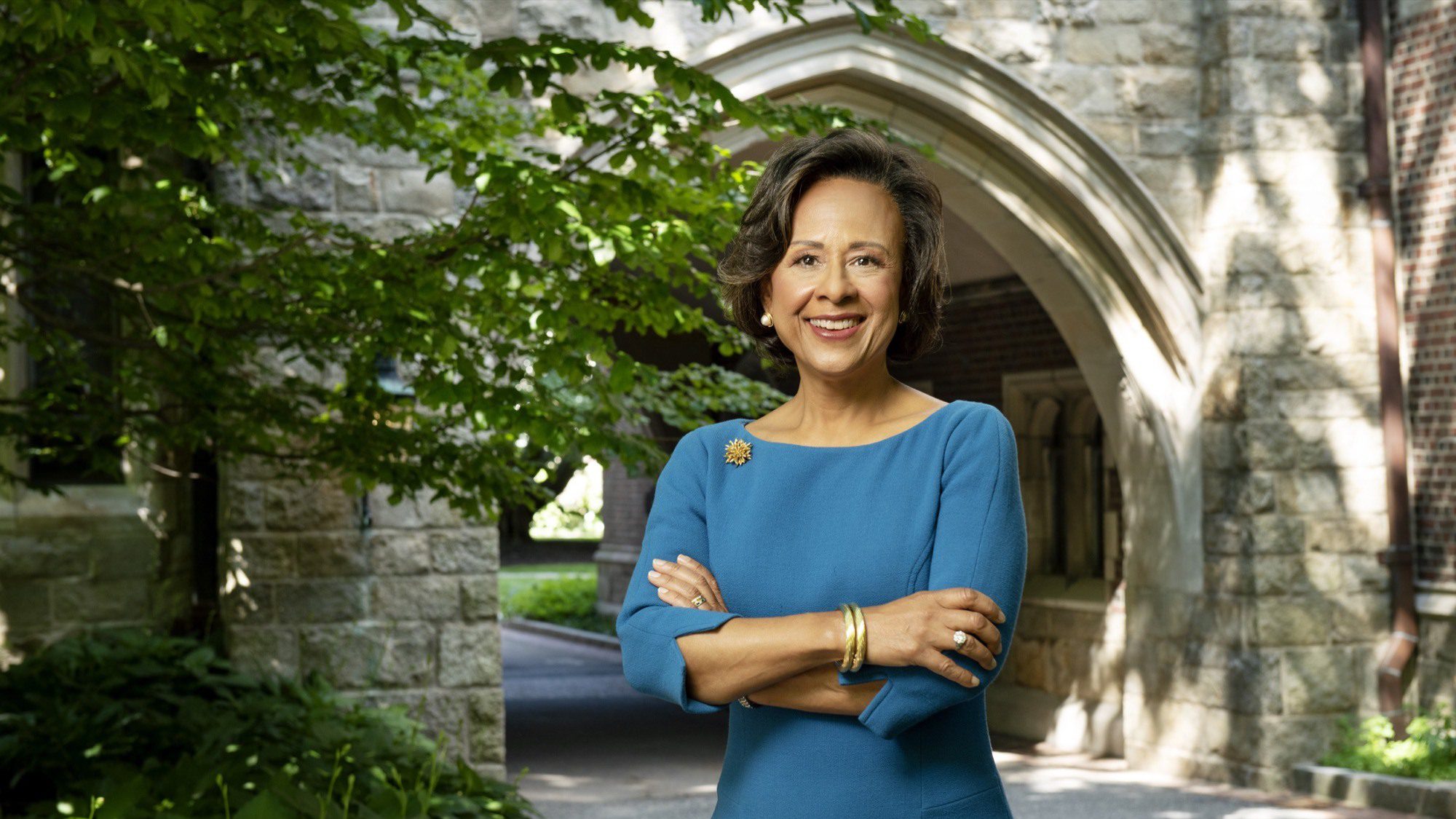Paula A. Johnson, 14th president of Wellesley College
Paula A. Johnson is an eminent physician-scientist and educator who has been recognized internationally for her contributions to medicine, public health, and science. Throughout her multifaceted career, she has held leadership roles in medicine, higher education, and public health.
Johnson has served as the 14th president of Wellesley College since 2016. Her ambitious agenda to educate civically minded, globally prepared students has lifted women’s education to new heights. During Johnson’s tenure, Wellesley has advanced STEM education, producing the largest number of women science Ph.D.s among its liberal arts peers and transforming its aging Science Center into a state-of-the-art complex.
As president, she drove the creation of an innovative strategic plan, approved in 2021, that has made Wellesley more outward-facing as it works to elevate the College’s mission to advance the status of women and girls around the world.
Johnson also led the establishment of the Susan L. Wagner ’82 Centers for Wellesley in the World, which prepares students to tackle the most complex challenges around the world and provide them with the skills to lead and engage through civic participation. Its three collaborating centers are the Hillary Rodham Clinton Center for Citizenship, Leadership, and Democracy; the Madeleine Korbel Albright Institute for Global Affairs; and the Wellesley Centers for Women, dedicated to research and action programs to advance gender equality.
Before her appointment at Wellesley, Johnson was the Grayce A. Young Family Professor of Medicine in Women’s Health at Harvard Medical School and professor of epidemiology at the Harvard T. H. Chan School of Public Health. She was also the chief of the Division of Women’s Health and founded and served as the inaugural executive director of the Mary Horrigan Connors Center for Women’s Health at Brigham and Women’s Hospital. While at the helm of both, Johnson advanced understanding about women’s health through new research, influenced health policy, executed a new model of integrated care, and transformed training for the next generation of medical providers and physician-scientists.
Johnson has received numerous honors for her work, most recently an honorary doctor of laws degree from Princeton University in 2024 and a doctor of leadership degree from the Asian University for Women in 2025. Other honors include the 2021 National Medical Fellowships Champions of Health Academic Excellence Award and the 2017 Stephen Smith Medal for Distinguished Contributions in Public Health. She is a recipient of the 2021 Alumni Award of Merit from the Harvard T. H. Chan School of Public Health and a 2023 Harvard Medal, which recognizes extraordinary service to the university. In 2015, she was inducted into the International Women’s Forum Hall of Fame, and she has been recognized as a leader in medicine by the National Library of Medicine.
Johnson is a member of the National Academy of Medicine, serving on its Commission on Investment Imperatives for a Healthy Nation, and of the American Academy of Arts and Sciences. Additionally, she serves on the board of trustees of Rockefeller University and the Isabella Stewart Gardner Museum and as an independent director of Johnson & Johnson. Previously, she chaired the Boston Public Health Commission, which oversees all public health initiatives and emergency services in the City of Boston.
Johnson received her A.B. from Harvard Radcliffe College, her M.D. from Harvard Medical School, and her M.P.H. from the Harvard T. H. Chan School of Public Health. She trained in internal medicine and cardiovascular medicine at Brigham and Women’s Hospital.
Select speeches & panels
-
When Leadership Matters Most—Shaping the Future in Turbulent Times
Inaugural Wellesley in Business Symposium, November 15, 2025
-
Celebrating our Sesquicentennial
Wellesley at 150, October 25, 2025
-
Convocation 2025
Wellesley College Convocation, September 2, 2025
-
Commencement 2025
Wellesley College Commencement, May 16, 2025
-
The Power of Presence: Leadership Across Generations and Borders
Asia Society Hong Kong, March 21, 2025
-
In Conversation with Harvard President Emerita Drew Faust
John F. Kennedy Presidential Library and Museum Forum, September 24, 2024
-
Science and Sex: A Bold Agenda for Women’s Health
National Academy of Medicine (NAM), NAM Perspectives, January 8, 2024
-
The Future of Higher Ed, and What it Means for Boston
Boston Globe Summit 2023, September 19, 2023
-
Lessons From an Anti-Feminist Virus
MIT Lincoln Laboratory 70th Anniversary Lecture, August 12, 2021
-
Inaugural Address
Wellesley College Inauguration, Sept. 30, 2016
-
His and Hers... Healthcare
TED Talk, January 22, 2014
Select media & op-eds
-
Dr. Paula Johnson Is Breaking Down the Barriers to Better Health
Wired Magazine, November 27, 2023
-
To diversify STEM fields, colleges should replace ‘weeding out’ with ‘welcoming in’
STAT, Feb. 10, 2023
-
How to Build an Economy that Works for Women
Boston Globe, March 29, 2022
-
What Madeleine Albright Taught Young Students
CNN.com, March 26, 2022
-
Speaking With the Enemy 101
Boston Globe, September 6, 2019
-
Halting Sexual Harassment
Scientific American, October 1, 2018
More about President Johnson
President’s Office
106 Central Street
Wellesley, MA 02481
